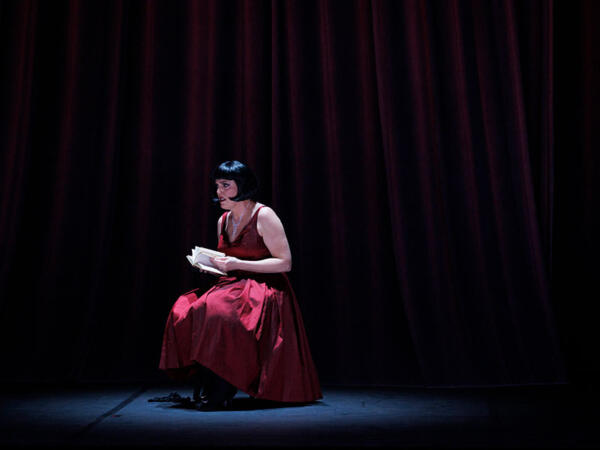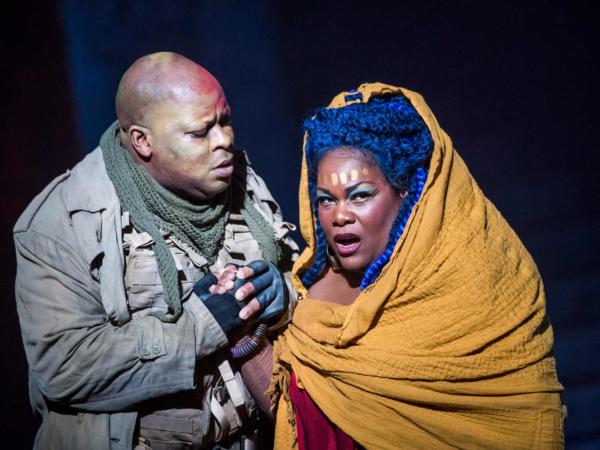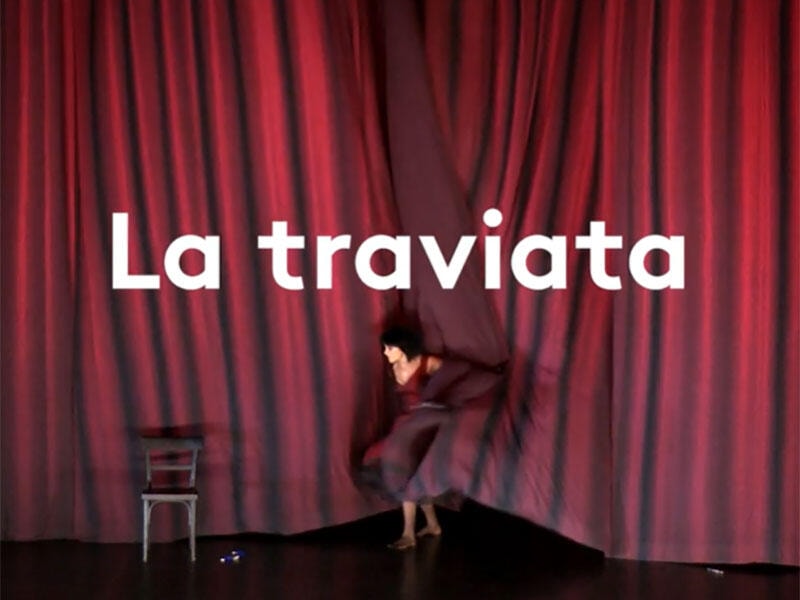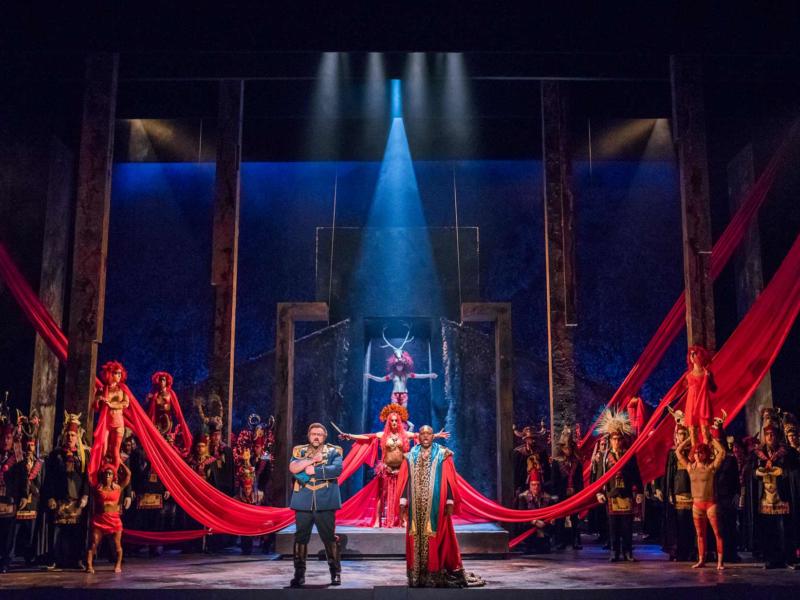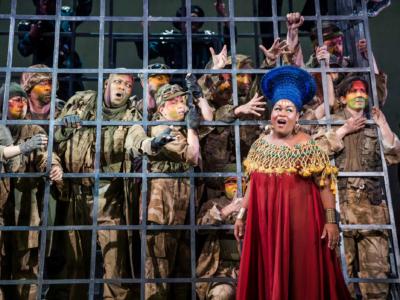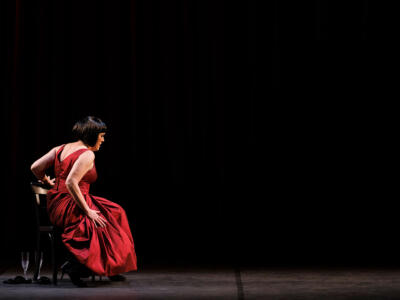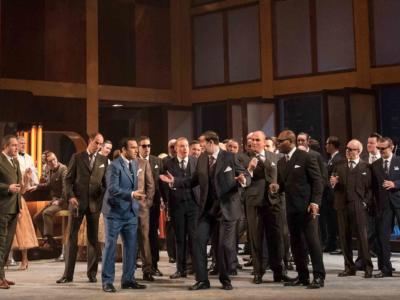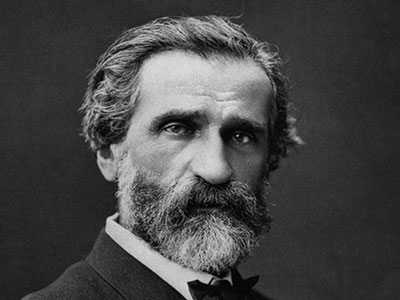
Giuseppe Verdi
(born Roncole, near Busetto 9 October 1813; died Milan 27 January 1901)
Giuseppe Verdi was the major Italian musical dramatist of the nineteenth century, the successor to Bellini, Donizetti and Rossini. Along with Wagner, he was the most important opera composer of the period and received national and international recognition for his powerful stage works.
Whereas Wagner turned to myth and legend for inspiration and fashioned his own librettos, Verdi drew on dramas by figures such as Dumas, Hugo, Schiller and Shakespeare as the basis for his output, working closely with established librettists such as Piave and Boito.
The life of Verdi: A summary
Learn more about Giuseppe Verdi and his life in this guide, which shares some of Verdi’s best-known operas, other celebrated compositions and more about his life.
Early life and education
Verdi’s parents, though described as ‘innkeeper’ and ‘spinner’ on Giuseppe’s birth certificate, came from families of small landowners and traders – not the uneducated peasant classes which Verdi later like to claim. Perhaps this explains Verdi’s excellent business acumen in later life, when he not only managed a successful musical career but also administered a landed estate.
Verdi was born in 1813 in the Emilia-Romangna region of Northern Italy, in a small village called Le Roncole in the province of Parma. He had one sibling a young sister, Giuseppa. Their home in the village, the “Casa Natale del Maestro”, is a national monument which can still be visited today.
Verdi had private lessons from the local schoolteacher, Baistrocchi from the age of 4 before starting school at 6. Verdi was an active member of his local church, he sang with the choir and served as an altar boy. Baistrocchi also taught Verdi the organ and after his death, Verdi became the church organist at the age of 8.
His father enrolled him in a boys school in the nearby town of Busseto at the age of 10 then he began his formal musical training aged 12. He was tutored by the Master of Music at St. Bartolomeo cathedral (San Bartolomeo) in Busseto. Verdi came to the attention of Antonio Barezzi, a Busseto businessman, who had founded the Bussetana Philharmonic Orchestra. Barezzi became his patron and later on his father-in-law.
Career highlights
Following studies in Milan, home to the famous La Scala opera house, Giuseppe Verdi made his earliest attempts at writing operas. However, it was the premiere of Nabucco at La Scala with its celebrated chorus of the Hebrew slaves, ‘Va pensiero’, that catapulted him to national fame. This chorus of longing for a homeland later became associated with the Italian nationalist movement.
The 1850s brought three operas whose popularity has never waned. Beginning in 1851 the opera Rigoletto, based on ‘Le Roi S’amuse’ by Victor Hugo ; Il trovatore (1853), based on a text by the Spaniard Gutiérrez; and La traviata (1853), based on Alexandre Dumas’s story of a courtesan’s love affair with a respectable young man.
Thereafter, Verdi never looked back and the premieres of his later Italian operas were all major cultural events, eagerly anticipated. His success brought him wealth which he used to buy land in Busseto. Firstly farmland for his parents and then land for himself to build his own house.
Verdi was a private man but became involved in public life as a politician in 1859. He was elected to the local provincial council in 1861 and then later to Parliament 1861 and eventually the Italian Senate in 1879.
While Verdi’s main focus was the lyric theatre, he did occasionally write in other genres, including the ever-popular Requiem (1874) and the Four Sacred Pieces (1887–96) for soloists, chorus and orchestra.
Later life
Although Verdi effectively ‘semi-retired’ after composing the opera Aida in 1871, he was persuaded back to the theatre for two final Shakespeare operas: his last – Falstaff – being premiered when he was 80.
In his final years, he took on philanthropic activities. He wrote a song to benefit the victims of an earthquake in Sicily. He organised the building of a home for retired musicians in Milan and a hospital near Busseto.
His last major piece of music, Four Sacred Pieces was published in 1898 and performed the same year in concert by Paris Opera.
Verdi's musical style and influence
While Verdi remained loyal to many of the well-established musical structures he inherited from the previous generation of Italian composers – such as the cavatina (a solo aria in distinct sections, moving from slow to fast) – he did much to expand and refine the available forms and generate a more sophisticated style of opera.
Verdi’s harmonic language is simple and direct, gaining in subtlety and adventurousness as his career progressed. His orchestral writing always supports the vocal line and underlines the dramatic argument.
Verdi’s most famous songs
Verdi wrote 26 complete operas during his lifetime as well as plenty of other works.
As well as being performed in opera houses, theatres and concert halls worldwide, Verdi’s music appears in films, television shows, video games and adverts.
- Stars Sparkled in the Evening Air’, from Luisa Miller
- ‘Love me, Alfredo’, from La traviata
- ‘Women abandon us’, from Rigoletto
- ‘Ah, is it he my lonely heart chose’, from La traviata
- ‘Dies Irae’, a movement from Verdi’s Requiem
- ‘Va, pensiero, sull’ ali dorate’ (Chorus of the Hebrew slaves), from Nabucco
- ‘Libiamo ne’lieti calci’, from La traviata
- ‘Vedi! Le fosche notturne spoglie’ (Anvil Chorus), from Il trovatore
- ‘Tutto nel mondo è burla’ (finale to Act III), from Falstaff
List of Verdi’s famous operas
- Nabucco (1842)
- Luisa Miller (1849)
- Il trovatore (1853)
- Don Carlos (1867, rev. 1884)
- Otello (1887)
- Falstaff (1893)
Find out more about Verdi’s operas that have been performed by ENO, as well as operas by other famous composers on our Discover Opera page
FAQs
When did Giuseppe Verdi die?
Verdi died on 27 January 1901 after suffering a stroke. He is buried in Milan, Italy.
What was Verdi’s last opera?
The last opera written by Verdi was Falstaff. It was first performed in 1893 at La Scala in Milan, Italy.
How long is Verdi’s Requiem?
Verdi’s Requiem (Messa da Requiem) is around 90 minutes long when performed. The first performance of the work was in Milan in 1874.
What is Giuseppe Verdi best known for?
Giuseppe Verdi is best known for being a composer. He wrote many operas including Rigoletto (1851), Il Trovatore (1853) and La traviata (1853) which are three of the greatest operas ever written.
How many operas did Verdi write?
Giuseppe Verdi wrote 26 full operas during his lifetime.
The first opera he wrote was Oberto in 1837 and the final opera was Falstaff in 1893.


